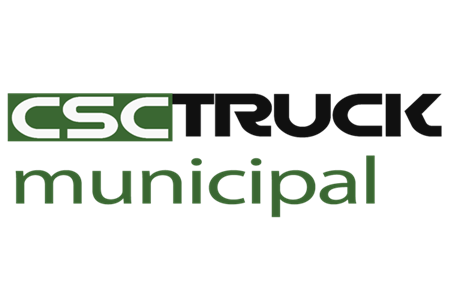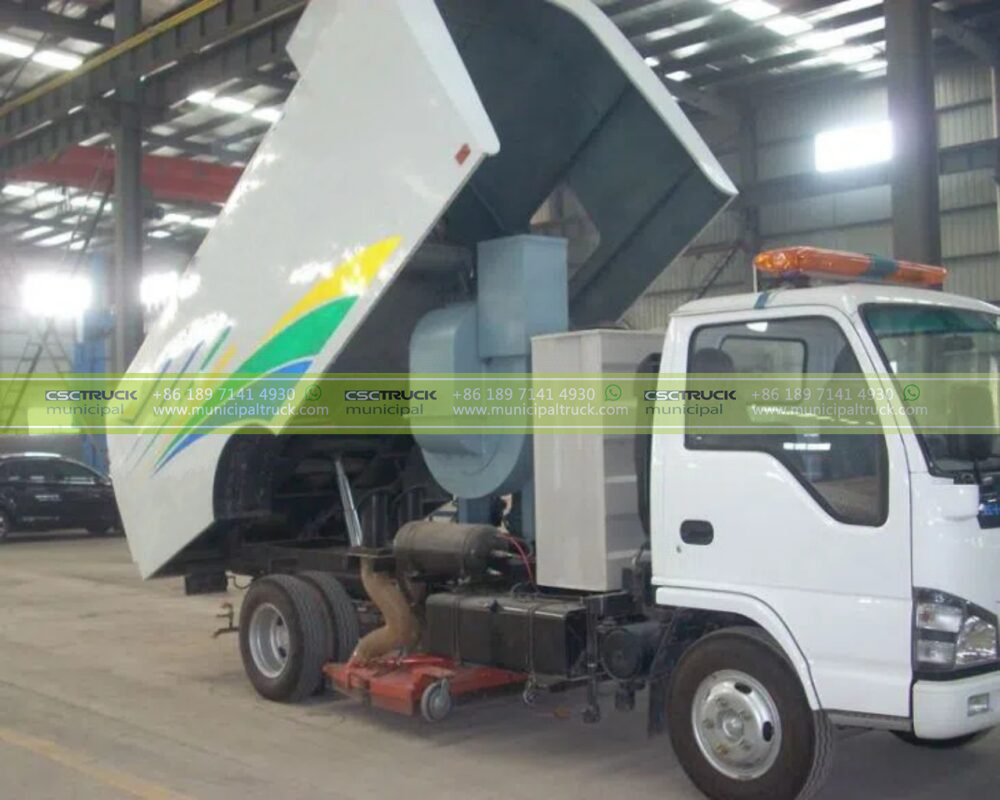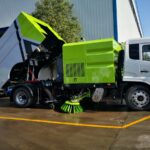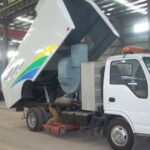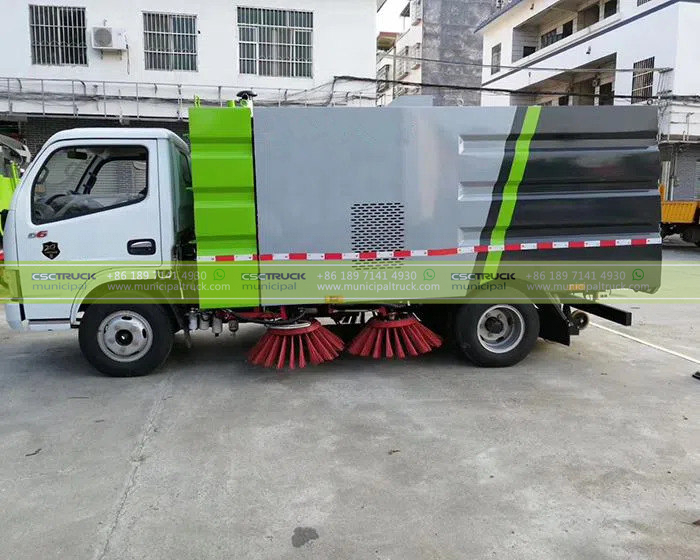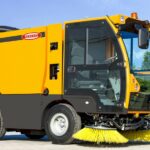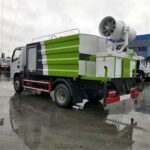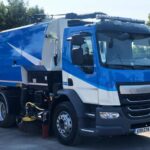Waterless sweeper trucks have emerged as innovative solutions for maintaining cleanliness on urban roads and highways while promoting sustainability through water conservation. Unlike traditional street sweepers that rely heavily on water for dust suppression and debris collection, these advanced vehicles utilize innovative technologies to effectively clean surfaces without the need for excessive water usage. This article explores the design, functionality, environmental impact, and operational benefits of waterless sweeper trucks, highlighting their role in modern urban maintenance.
The Mechanics of Waterless Sweeper Trucks
Innovative Cleaning Technologies
At the core of waterless sweeper trucks are advanced cleaning technologies that enable effective dust control and debris removal without the use of water. These vehicles typically employ high-efficiency vacuum systems combined with specialized brushes designed to agitate and lift dirt and debris from road surfaces. The vacuum systems capture the particles and deposit them into onboard storage containers, allowing for thorough cleaning without creating runoff or waste.
Dust Suppression Mechanisms
To address the challenge of dust control, which can be exacerbated by sweeping operations, waterless sweeper trucks are equipped with dust suppression mechanisms that utilize air filtration and electrostatic charging. The air filtration systems capture fine dust particles that are disturbed during the sweeping process, while electrostatic charging helps to neutralize and bind the dust, preventing it from becoming airborne. These features enhance the effectiveness of cleaning operations, ensuring that streets remain clean and safe for motorists and pedestrians alike.
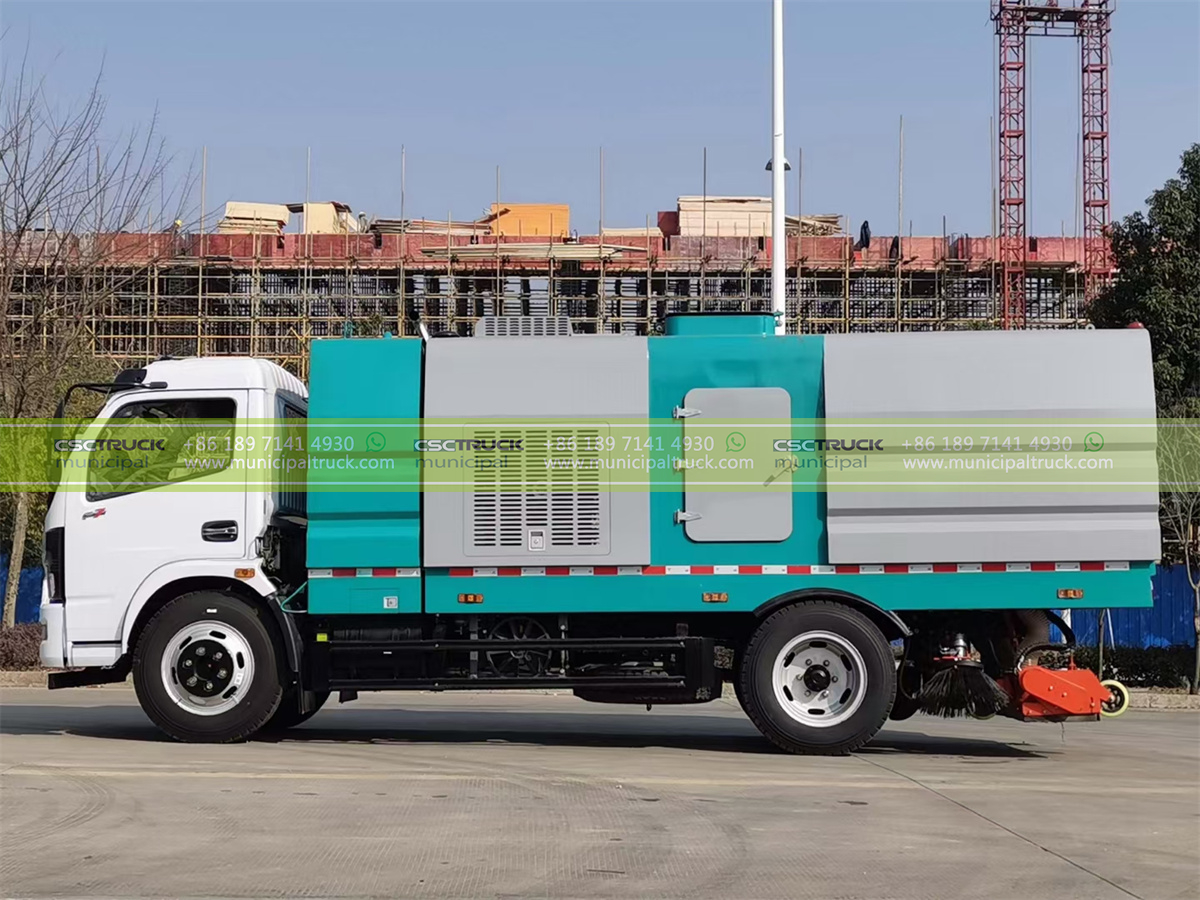
Environmental Advantages of Waterless Sweeper Trucks
Water Conservation Efforts
One of the most significant benefits of waterless sweeper trucks is their contribution to water conservation efforts, particularly in regions facing water scarcity. Traditional street cleaning methods often involve substantial water usage, which can be unsustainable in arid areas or during drought conditions. By eliminating the need for water in the cleaning process, waterless sweeper trucks provide a viable solution that not only reduces water consumption but also minimizes the strain on local water resources.
Reduction of Pollutants and Runoff
In addition to conserving water, waterless sweeper trucks help mitigate pollution and reduce runoff into nearby water bodies. Traditional sweeping methods can create runoff that carries dirt, debris, and pollutants into storm drains, potentially contaminating local waterways. Waterless sweeper trucks, by utilizing vacuum technology and dust suppression, ensure that debris is contained and collected rather than washed away, promoting cleaner urban environments and healthier ecosystems.
Enhanced Air Quality
Waterless sweeping operations contribute to improved air quality in urban areas, as these trucks capture and contain dust and particulate matter that would otherwise contribute to air pollution. By reducing airborne pollutants, waterless sweeper trucks play a crucial role in enhancing the overall health and well-being of city residents. Cleaner air not only benefits public health but also supports the broader goal of creating sustainable, livable urban spaces.
Operational Efficiency and Cost-Effectiveness
Time-Saving Cleaning Solutions
Waterless sweeper trucks offer significant operational efficiencies, allowing for quicker and more effective street cleaning. The absence of water simplifies the cleaning process, enabling operators to move swiftly from one area to another without the need to set up water hoses or deal with water runoff. This time-saving capability translates to increased productivity, allowing municipalities and contractors to cover larger areas in shorter time frames.
Reduced Maintenance Costs
Another advantage of waterless sweeper trucks is the potential for reduced maintenance costs. Traditional street sweepers that use water may require more frequent maintenance due to the wear and tear associated with water pumps, hoses, and tanks. In contrast, waterless sweepers have fewer components that are susceptible to corrosion and damage, resulting in lower maintenance requirements and longer lifespans for the vehicles.
Cost Savings from Water Usage
By eliminating the need for water, waterless sweeper trucks provide municipalities and private contractors with significant cost savings related to water procurement and treatment. In areas where water is metered or expensive, the financial benefits of using waterless technology become even more pronounced. The reduced water usage not only helps lower operational costs but also aligns with environmental sustainability goals, making waterless sweeper trucks an economically attractive option.
Versatility in Urban Maintenance
Adaptability to Different Environments
Waterless sweeper trucks are highly versatile and can be utilized in various urban environments, from residential neighborhoods to busy commercial districts and industrial zones. Their ability to operate effectively without water allows them to function in conditions that may be unsuitable for traditional sweepers, such as during droughts or in regions with water restrictions. This adaptability makes waterless sweepers an essential tool for urban maintenance teams looking to maintain cleanliness across diverse landscapes.
Integration with Smart City Technologies
As cities increasingly embrace smart technologies to enhance urban management, waterless sweeper trucks can be integrated into broader smart city frameworks. Equipped with GPS tracking and real-time monitoring systems, these trucks can be deployed efficiently based on data-driven insights related to traffic patterns, pollution levels, and maintenance needs. This integration allows for optimized cleaning schedules and targeted interventions, maximizing the effectiveness of urban cleaning operations.
Multi-Functional Capabilities
Many waterless sweeper trucks are designed with multi-functional capabilities, allowing them to perform additional tasks beyond street sweeping. For instance, some models are equipped with features such as leaf collection, debris removal, and even snow plowing capabilities. This versatility enhances the value of waterless sweeper trucks, enabling municipalities to consolidate their maintenance fleet and streamline operations.
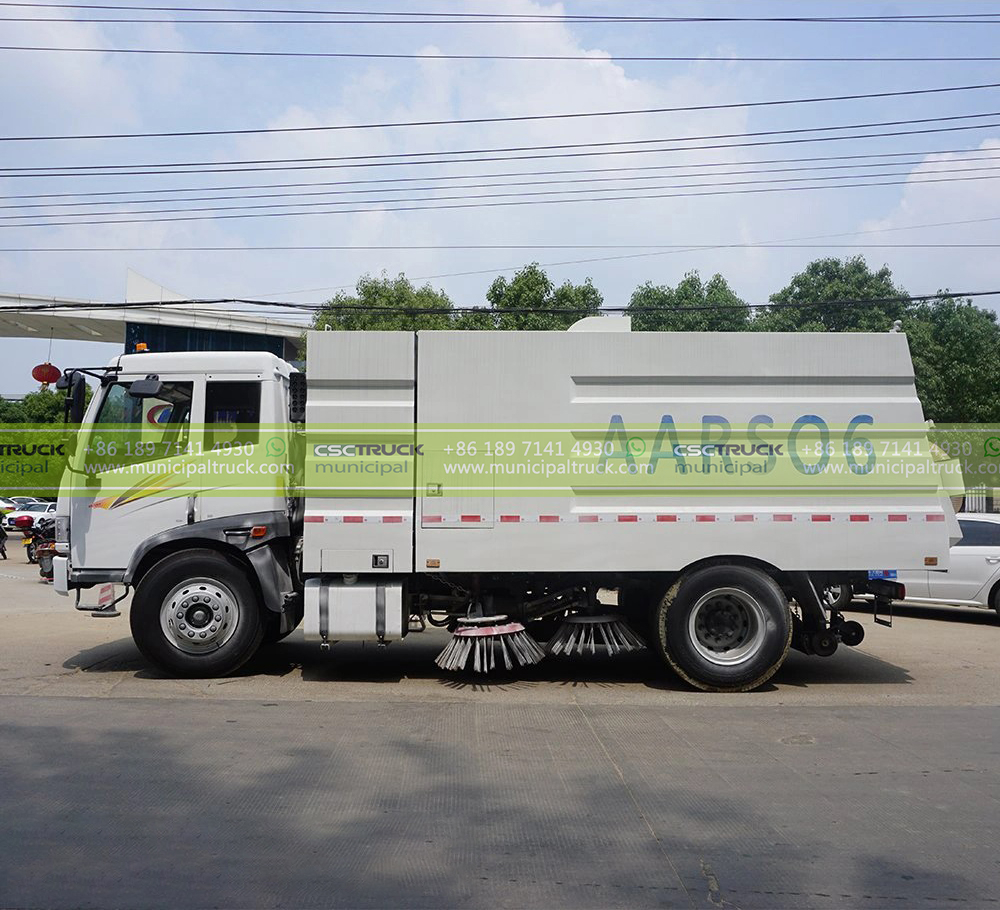
Case Studies of Successful Implementations
Urban Areas Adopting Waterless Sweeper Technology
Cities around the world are increasingly adopting waterless sweeper trucks as part of their urban maintenance strategies. For example, municipalities in arid regions have reported significant improvements in street cleanliness while successfully conserving water resources. By implementing waterless sweeping technology, these cities have demonstrated that it is possible to maintain high standards of cleanliness without compromising water conservation efforts.
Successful Outcomes in Waste Management
Waterless sweeper trucks have also proven effective in waste management applications, where the collection of litter and debris is essential for maintaining public spaces. In several case studies, municipalities have observed decreased litter levels and improved community satisfaction after integrating waterless sweepers into their waste management programs. The ability to operate without water enables these trucks to function efficiently in various settings, enhancing their impact on public cleanliness.
Challenges and Considerations
Initial Investment Costs
While waterless sweeper trucks offer numerous benefits, potential buyers must consider the initial investment costs associated with acquiring this specialized equipment. Although the long-term savings related to water usage and maintenance may offset these costs, municipalities must carefully evaluate their budgets and funding sources to ensure that they can make the necessary investment in waterless technology.
Training and Operational Adjustments
Transitioning to waterless sweeping operations may also require training for staff and adjustments to existing operational procedures. Operators must familiarize themselves with the unique features and functionalities of waterless sweeper trucks to maximize their efficiency and effectiveness. Additionally, municipalities may need to adapt their maintenance schedules and protocols to fully leverage the capabilities of these vehicles.
Public Perception and Awareness
As with any new technology, public perception and awareness play critical roles in the successful implementation of waterless sweeper trucks. Educating residents about the benefits of waterless sweeping and addressing any concerns regarding the effectiveness of these vehicles can help foster community support. Open communication about the environmental advantages and operational efficiencies can enhance public acceptance and encourage collaboration in maintaining cleaner urban spaces.
The Future of Waterless Sweeper Technology
Innovations on the Horizon
As technology continues to evolve, the future of waterless sweeper trucks looks promising, with ongoing innovations poised to enhance their capabilities even further. Advances in materials science, automation, and artificial intelligence may lead to the development of even more efficient and effective cleaning solutions. Future waterless sweeper models could incorporate smart sensors that detect pollution levels or debris types, allowing for tailored cleaning responses based on real-time conditions.
Expanding Applications
The applications of waterless sweeper trucks are likely to expand beyond traditional urban environments, as industries such as agriculture and mining also seek sustainable cleaning solutions. These trucks can play a vital role in maintaining cleanliness on unpaved roads, construction sites, and other challenging terrains, further solidifying their position as versatile and valuable tools across multiple sectors.
A Sustainable Future
Ultimately, waterless sweeper trucks represent a significant step toward more sustainable urban maintenance practices. As cities grapple with water scarcity and environmental concerns, the adoption of innovative technologies that prioritize conservation and efficiency will become increasingly essential. Waterless sweeper trucks stand at the forefront of this movement, offering a practical and effective means of keeping our roads clean without compromising our water resources.
